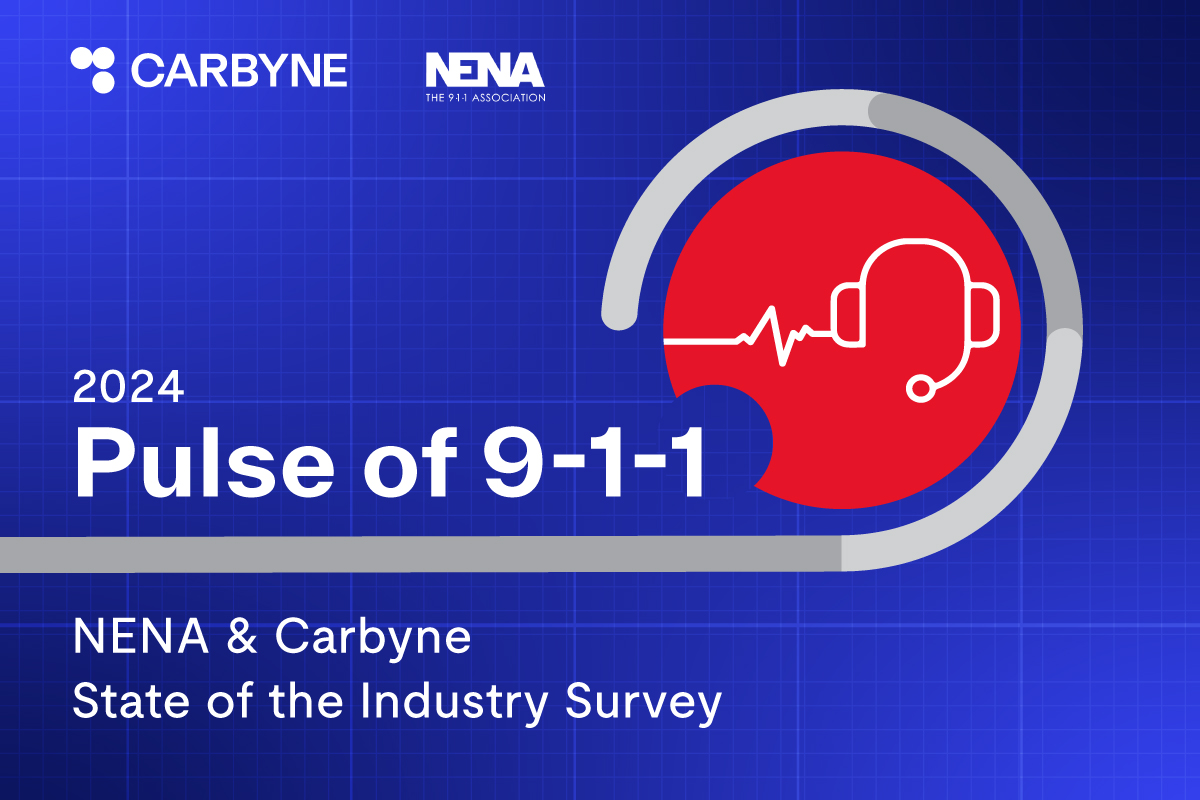
The Pulse of 9-1-1 Survey examines new ways to solve challenges in emergency response. It reveals compelling trends through survey data, and expert talks at its accompanying conference.
The 2024 survey and conference, organized by Carbyne and the National Emergency Number Association (NENA), examined innovations, while discussing long-standing issues for Emergency Communications Centers (ECCs). Survey results and conference discussions uncovered the path towards solutions. Expert panelists identified key problems, and offered their thought leadership and insights into new technologies and strategies to resolve many of these issues.
The Challenge of Staffing and Technology
The data exposed staffing shortages and tech issues faced by ECCs across North America. Most employees love their jobs, a striking 87% expressing fondness for their roles. Yet severe staffing deficits remain, with 75% of centers lacking funds to hire enough staff. Moreover, 82% of those with budgets struggled to fill open positions. Clearly, recruiting and retaining staff poses a major crisis.

During the conference, speakers directly addressed these challenges. The session “AI as a Force Multiplier to Address 9-1-1 Staffing Challenges” featured leaders from Carbyne and 9-1-1 centers in Jefferson County, CO, New Orleans, LA, and Atlanta, GA. They examined how artificial intelligence can ease staffing woes, automating tasks, enhancing call efficiency. One major conclusion was that AI has potential to revolutionize workforce management, but needs to be analyzed in detail and implemented strategically.
Click here to watch the conference on demand
Advancements in Mental Health and Wellness Support
Significantly, the survey revealed an uptick in mental health service use by ECC employees – rising from 34% in 2023 to 44% in 2024. This positive shift signals growing recognition of emotional support needs for those on emergency communications frontlines.
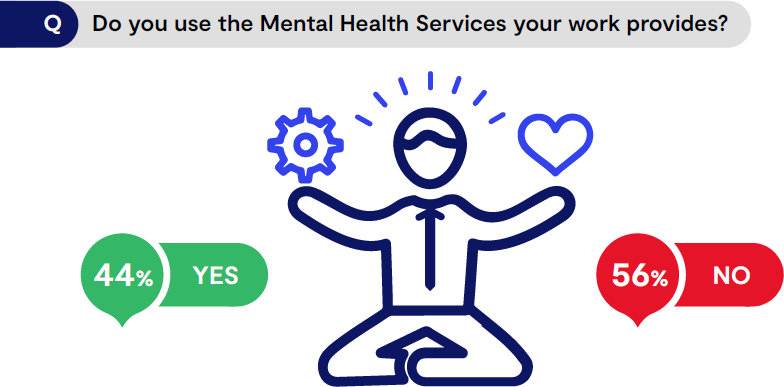
“Beyond the Call: Navigating Mental Health Challenges in Public Safety” delved deeper into this issue. Dawn Shumway of Ada County, Idaho and filmmakers Conrad Weaver, Jason Harney shared powerful insights into profound mental tolls faced by first responders – stressing critical importance of robust support frameworks safeguarding wellbeing of these essential professionals. The two filmmakers discussed things they experienced and learned while making their respective documentaries PTSD 9-1-1 and Is There Something Going On At Home.
Technological Innovations and NG911
The data also captured a notable surge in advanced tech adoption – with 72.5% now accessing precise geolocation, up substantially from last year. Yet outdated systems still pose roadblocks in many 9-1-1 centers.
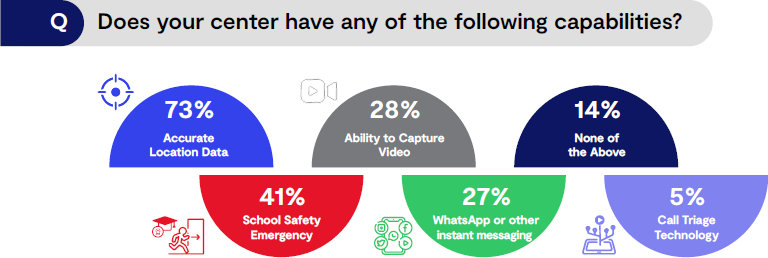
Addressing this head-on, the “State of NG911 Migration” panel convened experts unpacking the ongoing shift to
Next Generation 9-1-1 capabilities. These solutions boost 911 centers’ ability to receive granular caller data, like imagery, streamlining response speed and operational efficiency as outlined by the panelists spearheading this transformation.
Empowering Women in Emergency Communications
The emergency communications workforce is made up of 70% women, yet significantly less reach leadership roles within the industry. The session “Empowering Women in 9-1-1” addressed these hurdles. The panelists – Shireka Graham of Georgia Tech 9-1-1, Erica May of Memphis, TN 9-1-1, Sara Weston of 911der Women, and Diva Miranda Jones representing NENA’s Women in 9-1-1 alliance group, discussed their experience and challenges navigating upward mobility in the industry. The session spotlighted initiatives like mentorship and leadership programs. It stressed creating environments recognizing women’s unique stresses which will ultimately aid growth and leadership opportunities.
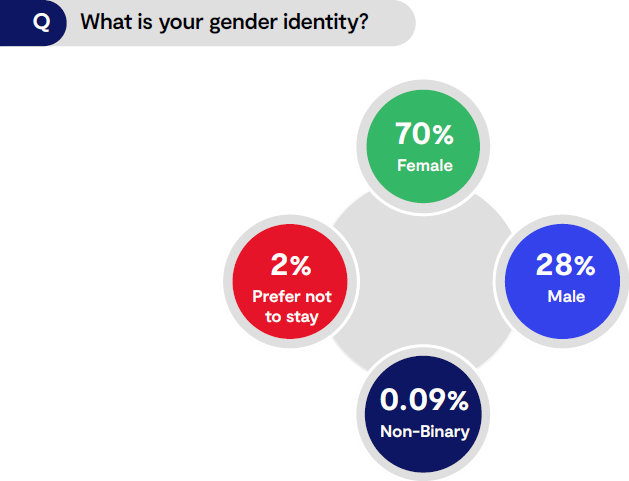
Training and Onboarding: Addressing High Failure Rates
Training new staff is a challenge identified in the survey with around 50% of newly hired employees unable to complete it successfully. The “Effective Training and Onboarding Practices” panel discussed strategies they have found to be successful in the training and onboarding processes within their centers. Panelists spoke on innovative methods of recruiting, hiring, and training that can improve retention.
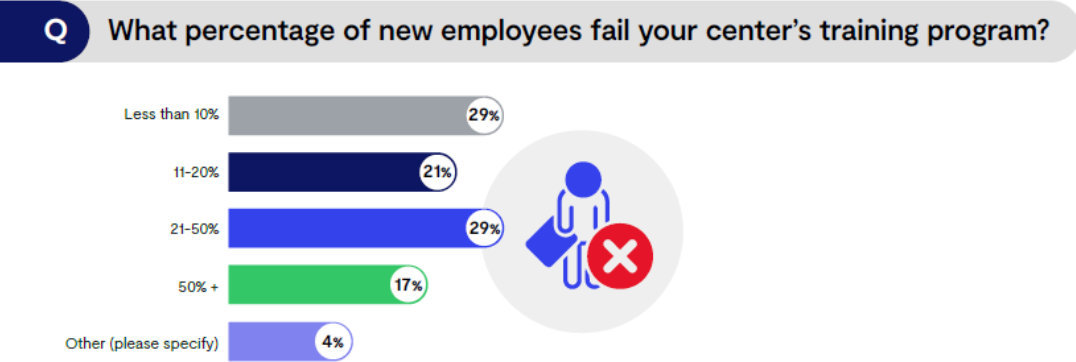
Concluding Reflections and Acknowledgments
The 2024 Pulse of 9-1-1 survey and conference brilliantly illustrated the current state and future aspirations of the emergency communications industry. Notably, the event was supported by prominent figures such as Debra Jordan from the FCC, Joe Wassel from the FirstNet Authority, and members of Congress including Norma Torres, Robin Kelly, and Kat Cammack, who provided insights into the legislative landscape affecting public safety communications. Additionally, Jennifer Love Hewitt, who portrays dispatcher Maddie Buckley on the popular TV show “9-1-1,” contributed a special message, emphasizing the cultural impact of emergency communication professionals.
By weaving together survey data and expert panel discussions, the event painted a vivid picture of the challenges and innovations defining this critical field. It highlighted not only the struggles of 9-1-1 center personnel but also the resilience and dedication that drive continuous improvement and innovation in emergency communications. As we move forward, the insights and strategies shared during this event will undoubtedly guide the evolution of ECCs, ensuring they are more equipped, inclusive, and responsive to the needs of the communities they serve. The complete survey results are available here and the conference can be watched on-demand here. This is a unique opportunity to dive deeper into the discussions and solutions presented at this groundbreaking event.
The complete survey results are available here and the conference can be watched on-demand here. This is a unique opportunity to dive deeper into the discussions and solutions presented at this groundbreaking event.